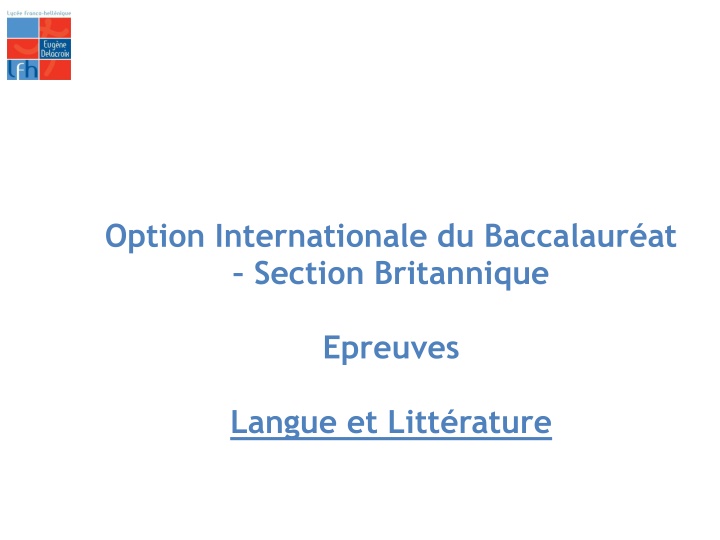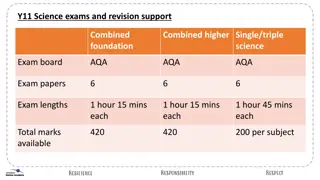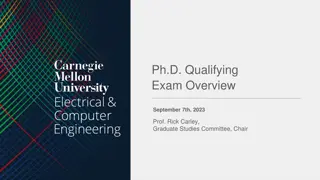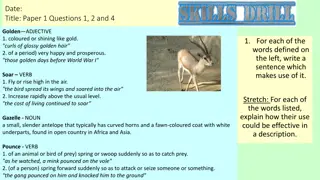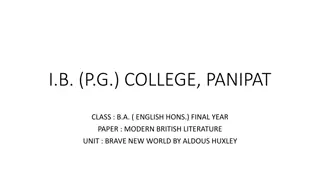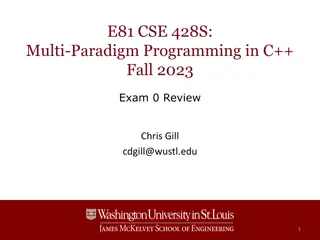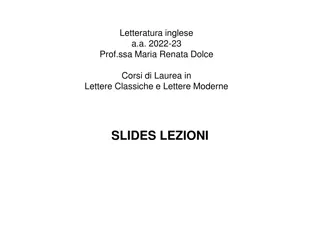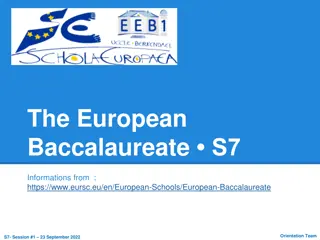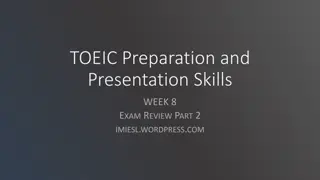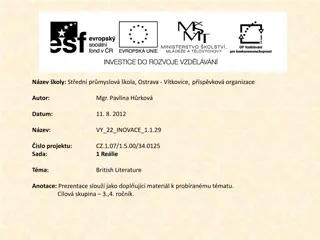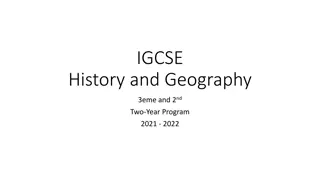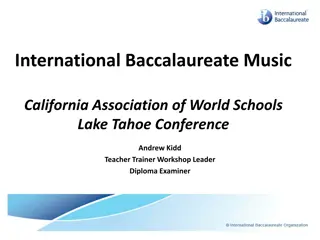International Baccalaureate British Section Language and Literature Exam Details
This detailed guide outlines the structure and content of the International Baccalaureate British Section Language and Literature Exam. It covers the choice of works, written exam requirements, oral exam format, and synoptic topic discussion. Students will find information on the types of texts, essay topics, Shakespeare plays, and post-colonial literature covered in the exam.
Download Presentation

Please find below an Image/Link to download the presentation.
The content on the website is provided AS IS for your information and personal use only. It may not be sold, licensed, or shared on other websites without obtaining consent from the author.If you encounter any issues during the download, it is possible that the publisher has removed the file from their server.
You are allowed to download the files provided on this website for personal or commercial use, subject to the condition that they are used lawfully. All files are the property of their respective owners.
The content on the website is provided AS IS for your information and personal use only. It may not be sold, licensed, or shared on other websites without obtaining consent from the author.
E N D
Presentation Transcript
Option Internationale du Baccalaurat Section Britannique Epreuves Langue et Litt rature
Choice of works The choices of set works fall into five categories: Drama Poetry Prose Fiction A Synoptic topic A Shakespeare play
The Written Exam All answers written in English. Set texts may NOT be taken into the examination. Part 1: Works previously studied in class(2 hours 40 minutes) Two questions, 1 hour 20 minutes each; two-thirds of the total marks. Part 2: Critical Appreciation (1 hour 20 minutes) One question (choice of 2 for each question), 1 hour 20 minutes; one- third of the total marks. Candidates must write a critical appreciation of previously unseen poetry or a passage of previously unseen prose or a mix of both.
WRITTEN EXAM: 3 essays in 4 hours A) 2 essays on texts studied in class Prose, Adam Bede by George Eliot Far From the Maddinbg crowd by Thomas Hardy Poetry, Selected Poems by W.H.Auden Selectde Poems by Ezra Pound Drama, The Homecoming by Harold Pinter Waiting for Godot by Samuel Beckett B) + 1 essay on unseen texts A Critical Appreciation Essay (Above are the texts and topics to be studied for the June 2016 June 2018 exams)
ORAL EXAM total of 30 minutes 1) Shakespeare Troilus and Cressida First 15 minutes 1) Synoptic Topic Post Colonial literature Second 15 minutes 6 poems and 2 longer works (Novel: The God of Small Things by Arundhati Roy Play: Translations by Brian Friel)
Oral Examination 30 minutes in English (after 35 minutes supervised preparation); Part 1: Detailed Shakespeare commentary followed by discussion (7+ 8 min+- approximately 15 minutes) Candidates are required to give a detailed commentary on a passage (between 30-34 lines long) from the Shakespeare play that they have studied and to discuss it with the examiners. Part 2: Synoptic Topic (approximately 3+12 min+-15 minutes) Candidates are required to engage in a discussion 7on one of the 6 poems and the two other works to show understanding of the synoptic topic.
SYNOPTIC TOPIC Post Colonial literature 1) Poetry: 1) A Far Cry from Africa (Derek Walcott), 2) A Different History (Sujata Bhatt), 3) Things Fall Apart (Jackie Kay), 4) The Immigrants (Margaret Atwood), 5) Checking Out Me History (John Agard), 6) Colonial Girls School (Olive Senior) 2) Topic discussion Based on 2 novels: 1) Translations by Brian Friel 2) The God of Small Things by Arundhati Roy
LANGUAGE AND LITERATURE The syllabus aims: 1) to encourage and develop the enjoyment and appreciation of literature in English, based on an informed personal response, and 2) to develop the ability to analyse and discuss that response and the texts which produced it, in a cogent, organised manner.
Marking Criteria written exam and classroom assignments (DS) Answers are assessed on a Key Point scale. KP20 - Work of Distinction / Very good KP17 - Very Good / Good KP14 - Good / Satisfactory KP11 - Passable / Basic KP8 - Elementary / Inadequate standard
Objectives The examination assesses the candidates' response to literature by allowing them to display: Knowledge: of the works studied and the historical and personal contexts in which they were written; Understanding: extending from simple factual comprehension to a recognition and conception of the nature and significance of literary texts and the issues and ideas which they raise; Analysis: the ability to develop and explain their response, and to identify and describe literary effects;
Judgement : the capacity to make critical assessments and judgements of value based on close reading; the capacity to answer questions on specific aspects and features of a text by selecting relevant material for discussion; Cultural Awareness : the ability to appreciate the character and significance of texts produced in a language and culture which may not be their own; Expression : the ability to express, in fluent and effective English, ideas, opinions and responses in organised and cogent essays on literary subjects - probably (although not compulsorily) following the characteristics of a formal written register; the ability to engage in an informed literary discussion.
